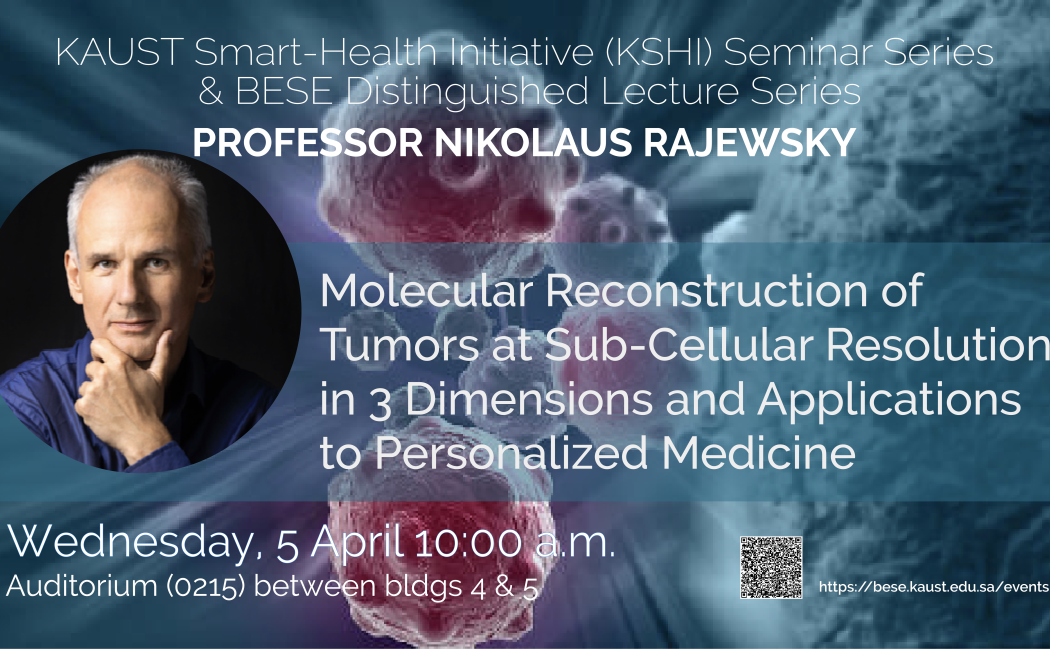
KSHI Seminar Series & BESE Distinguished Lecture Series: Professor Nikolaus Rajewsky
Presented by: Professor Nikolaus Rajewsky, Scientific Director, Berlin Institute for Medical Systems Biology of the Max Delbrück Center (MDC-BIMSB) & Professor, Charité - Universitätsmedizin Berlin
Host: KAUST Smart-Health Initiative (KSHI) - Prof. Valerio Orlando
Abstract:
Cells live and interact in three dimensions. However, in the clinics, standard pathology will stain a patient’s tissue biopsy using a two-dimensional slice and only a few biomarkers. I will present ongoing studies where we have applied spatial omics
technologies (developed by our lab) to resolve, genome wide, gene expression of patient tumor biopsies at sub-cellular resolution and in three dimensions. I will also present how these data can be used to systematically identify and score personalized
targets for immunotherapy. Finally, if time permits, I will present ongoing work on patient derived brain organoids where we used single-cell analyses to identify pathways which, if blocked, prevent neural damage in Herpes infections. This work addresses
an important clinical need for patients where Herpes causes encephalitis.
Bio:
Nikolaus Rajewsky uses both computational and experimental molecular biology methods to study the function of RNA in animal development and stem cells. Nikolaus is a Professor at the Charité, the Max Delbrück Center, and the Humboldt University in Berlin. He has received numerous awards, including the most important prize in Germany (“Leibniz” award). In 2008 he founded and since then chairs the “Berlin Institute for Medical Systems Biology” (“BIMSB”, a new MDC center, now 17 labs and a new building in the center of Berlin). His latest research (and of Colleagues) using single-cell approaches was featured in Science “Breakthrough of the Year 2018”. Nikolaus serves as coordinator of “LifeTime”, a pan-European consortium of 90 research institutions & >70 companies to understand molecular mechanisms of the progression of human diseases.
